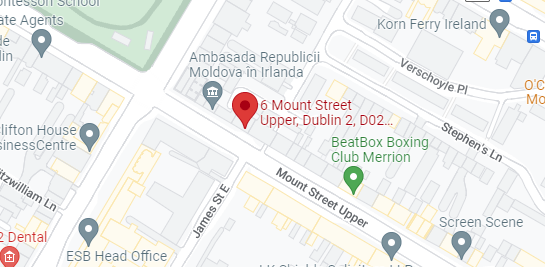There have been a number of recent cases clarifying and redefining the scope of legal professional privilege. The latest decision of the Court of Appeal of 30 November 2018 in WH Holding Ltd and another company v E20 Stadium LLP (“E20), which relates to West Ham United’s new stadium, certainly represents one of considerable importance.
By way of recap, legal professional privilege is sub-divided into legal advice privilege and litigation privilege and this judgment relates to the latter.
The Background
The primary dispute between WH Holding Limited and West Ham United Football Club Limited (together “WH”) and the owner of Stadium (E20) relates to the number of seats that West Ham is entitled to use. E20 contended for 53,500 seats whereas West Ham asserted that it is entitled to use all of the seats, subject only to necessary permissions being granted by the appropriate authorities. West Ham also contended that E20 is obliged to maximise such permissions and that by agreement E20 was in breach of a general obligation of good faith to do so.
The appeal arose out of WH’s unsuccessful attempt to secure disclosure of certain emails passing between E20’s Board members and between Board members and stakeholders which E20 asserted were generated for the dominant purpose of discussing a commercial settlement proposal.
The Issue
The Court of Appeal considered three issues:
- whether the scope of litigation privilege is restricted to documents concerned with obtaining advice or evidence for the conduct of litigation;
- whether the first instance Judge had properly applied the “dominant purpose” test; and
- the correct approach to be taken by a court to an application for inspection of documents by the court where a claim to privilege is challenged.
The third of these relates to procedure to be adopted by the Court and is not within the scope of this article.
The Findings
- Scope of Litigation Privilege
The Court of Appeal encapsulated this issue as “whether litigation privilege extends to documents which are concerned with the settlement or avoidance of litigation where the documents neither seek advice or information for the purpose of conducting litigation nor reveal the nature of such advice or information”. Its answer was in the negative.
The Court of Appeal referred Lord Carswell’s summary in the House of Lords decision in Three Rivers DC v Governor and Company of the Bank of England (No 6) that litigation privilege attaches to “communications between parties or their solicitors and third parties for the purpose of obtaining information or advice in connection with existing or contemplated litigation … but only when the following conditions are satisfied: “(a) litigation must be in progress or in contemplation; (b) the communications must have been made for the sole or dominant purpose of conducting that litigation; (c) the litigation must be adversarial, not investigative or inquisitorial.”
The Court of Appeal accepted that following its own decision in SFO v Eurasian Natural Resources Corporation Ltd (which we have analysed separately in a recent article), “conducting litigation” encompassed avoiding or settling litigation; however, it made clear that the dominant purpose test still had to be satisfied, i.e. the communication must have come into existence for the sole or dominant purpose of obtaining the information or advice in connection with existing or contemplated litigation. If that dominant purpose was other than to obtain such information or advice the test is not met.
Significantly the Court of Appeal commented that it was “not shown any authority which would extend the scope of litigation privilege to purely commercial discussions” and that that was not the effect of SFO v Eurasian Natural Resources Corporation Ltd.
The Court accepted that had the documentation expressly or implicitly revealed the nature of such advice the position would be different but such a claim was not made. In this case the emails had been created “… with the dominant purpose of discussing a commercial settlement of the dispute when litigation with [West Ham] was in contemplation.”
Equally significantly, in one short paragraph which highlights a huge area of risk, the Court of Appeal also dismissed E20’s assertion that litigation privilege was available for internal communications within a corporate body, indicating that the position would be the same also with internal communications of partners or bodies of trustees.
- Purpose Test
The relevant contract contained an expert determination as well as a more formal litigation option and WH asserted that the first instance Judge had not considered for which of those the documents had been generated. The Court of Appeal found that his was irrelevant as litigation was already in reasonable contemplation. It also found that where there are multiple “adjudication” options, one of which is adversarial litigation and litigation is in reasonable contemplation, the dominant purpose requirement of litigation privilege is met if the information or advice is obtained for the purposes of settling the dispute. It was not necessary to investigate further.
Lessons
The Court of Appeal succinctly summarised the ambit of litigation privilege as follows:
- Litigation privilege is engaged when litigation is in reasonable contemplation.
- Once engaged it covers communications between parties or their solicitors and third parties for the purpose of obtaining information or advice in connection with the conduct of the litigation, provided it is for the sole or dominant purpose of the conduct of the litigation.
- Conducting the litigation includes deciding whether to litigate and also includes whether to settle the dispute giving rise to the litigation.
- Documents in which such information or advice cannot be disentangled or which would otherwise reveal such information or advice are covered by the privilege.
- There is no separate head of privilege which covers internal communications falling out-side the ambit of litigation privilege.
The findings in relation to the purpose test are welcome, particularly as many contracts contain multiple dispute resolution options. Construction contracts, will generally import some form of adjudication procedure.
As to the scope of litigation privilege generally, it is clear that internal communications within any organisation are not intrinsically privileged. As such, care must be taken by any party to actual or potential litigation before any communication which relates to the dispute in question, internal or external, is generated. Unless the purpose of that communication is the obtaining of advice or information for the dominant or sole purpose of the conduct of the litigation (including its settlement), litigation privilege will not be available. The categories falling outside the scope of this are numerous but could potentially include, information provided for commercial or PR impact assessment, for accounting or audit purposes or for general information to Board members, stakeholders, employees or others. Moreover, it appears this could arguably include the passing on of otherwise privileged material (such as legal advice) if the purpose of the creation of the new communication is not itself to obtain advice or information for the dominant purpose of conducting the litigation.
Nor can such risks be avoided by channelling such communications through in-house counsel or solicitors. The same considerations will apply even if they are generated by the legal team unless legal advice privilege can be claimed. As we have highlighted in other recent articles, that is only available for lawyer-client communications with the “client” being limited to those employees/officers charged seeking and receiving legal advice. It would also appear likely only to relate to documents which might betray the tenor of the legal advice provided.
Legal professional privilege represents both a hugely complex and a rapidly developing area. Any party facing potential litigation or any allegation of wrongdoing would be advised to obtain early professional guidance to set up appropriate rules and lines of communication to avoid the inadvertent generation of any potentially prejudicial and non-privileged materials.
This article was written by Peter Campion, Senior Consultant



